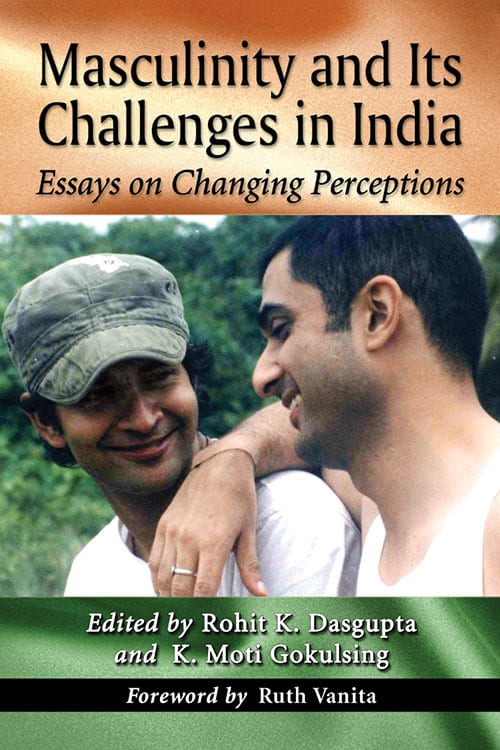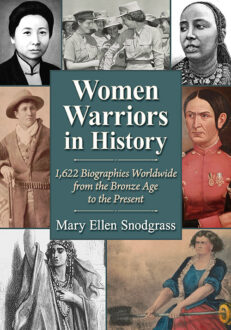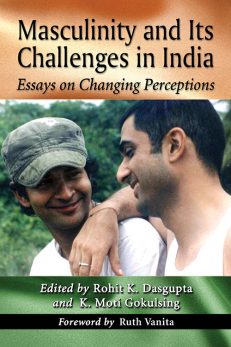Masculinity and Its Challenges in India
Essays on Changing Perceptions
$39.95
In stock
About the Book
This volume of new interdisciplinary essays provides insights into the emerging field of masculinities and the challenges it poses to the Indian male. Masculinities research has evolved considerably and demonstrates that men are not an homogenous group but are instead diverse—there are many “masculinities.” Manliness can no longer be studied from just a North American or European perspective but from those of every part of the world. Covering an array of topics such as the construction of identity and the negotiation of power and sexuality, these essays aim to show how masculinities are experienced and embodied within India.
About the Author(s)
Bibliographic Details
Edited by Rohit K. Dasgupta and K. Moti Gokulsing
Foreword by Ruth Vanita
Format: softcover (6 x 9)
Pages: 252
Bibliographic Info: 5 photos, notes, bibliography, indexes
Copyright Date: 2014
pISBN: 978-0-7864-7224-6
eISBN: 978-1-4766-1256-0
Imprint: McFarland
Table of Contents
Acknowledgments v
Foreword—Ruth Vanita 1
Introduction: Perceptions of Masculinity and Challenges to the Indian Male—Rohit K. Dasgupta and K. Moti Gokulsing 5
“Sane Sex,” the Five-Year Plan Hero and Men on Footpaths and in Gated Communities: On the Cultures of Twentieth-Century Masculinity—Sanjay Srivastava 27
Critical Masculinity Studies in India—Mangesh Kulkarni 54
If Singularity Is the Problem, Could Intersectionality Be the Solution? Exploring the Mediation of Sexuality on Masculinity—Roshan das Nair 73
Bearly Indian: “Fat” Gay Men’s Negotiation of Embodiment, Culture and Masculinity—Pranta Pratik Patnaik 93
The Nation as Mimicry: The (Mis)reading of Colonial Masculinities in India—Kama Maureemootoo 106
Mobilizing for Sexual Health: The Experience of Queer Indian Men in London—David A. Ansari 126
Masculinities of Desire, Derision and Defiance: Global Gay Femmephobia and Kothi-Hijra-Trans Heterosexualities—Aniruddha Dutta 142
Corporal Punishment: English and Homosocial Tactility in Postcolonial Bengal—Niladri R. Chatterjee 165
Of Girmitiyas and Mimic Men: Alternative Masculinity in V.S. Naipaul’s A House for Mr. Biswas—Vishnupriya Sengupta 174
Gay Writing and the Idea of Doubleness—Akhil Katyal 187
Negotiations of Masculinity in Ritwik Ghatak’s Partition Trilogy—Tanmayee Banerjee 201
Masculinizing the (Post)colonial Subject: The Amar Chitra Katha Comic Book—Sayantan Dasgupta 217
Rethinking the Circuits of Male Desire Across Multiple Dostanas—Dashini Jeyathurai 227
About the Contributors 241
Index 243
Book Reviews & Awards
- “A very useful contribution to the existing literature on masculinities in India, but also, a very enjoyable read. The richly conversational and yet theoretically rigorous style of writing represented will no doubt make the book appealing both to undergraduates beginning to explore an interest in these topics, and to scholars researching this area”—The Royal Society for Asian Affairs
- “Here is an outstanding collection which examines the nature of Indian masculinity from a rich variety of perspectives, historical, sociological, psychological. This book will become an important tool in understanding the tensions in modern Indian society and ways of resolving them”—Lord Meghnad Desai, Professor Emeritus, London School of Economics
- “This collection edited by Rohit K. Dasgupta and K. Moti Gokulsing is one of the most ambitious and comprehensive stock taking of South Asian masculinity undertaken in recent times. With an attractive blend of contributions from some well known names and a number of young scholars, the book spans ethnography, history, literary criticism and culture studies to look at Indian masculinity as a contested domain, which allows the play of some of the core fantasies of society and, at the same time becomes the site of experiments with the esoteric or the arcane.”—Ashis Nandy, Honorary Research Fellow, CSDS
- “This ground breaking collection provides new frames of reference for understanding South Asian masculinities in the context of colonialism, post-colonialism and contemporary consumer culture.”—Richard Allen, New York University.





